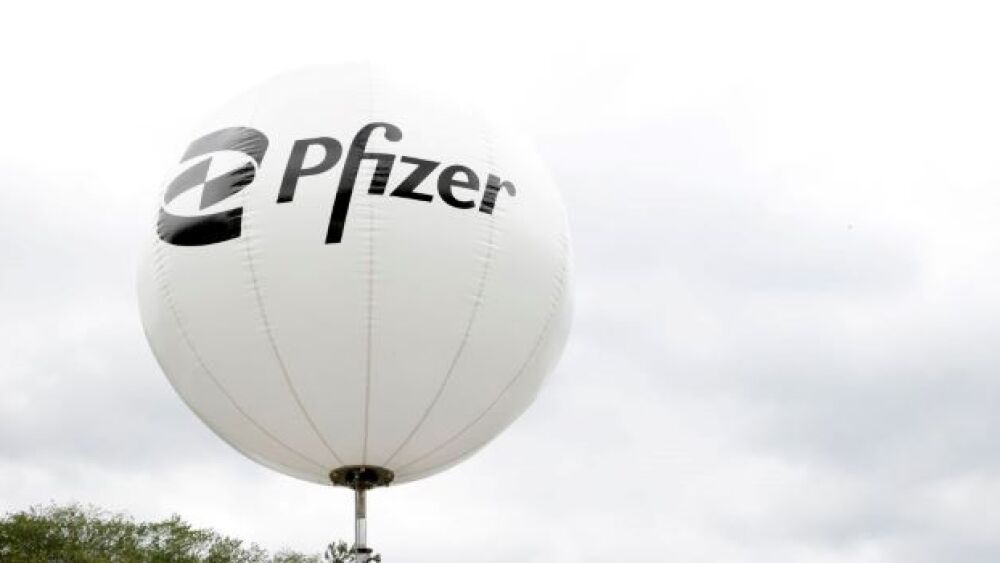Under the terms of the deal, Pfizer is picking up all outstanding shares of Trillium that it doesn’t already own for $18.50 per share in cash.
Jamie McCarthy/Getty Images for Live Nation
Pfizer announced it is buying Toronto and Cambridge, Massachusetts-based Trillium Therapeutics in a deal worth $2.26 billion. Trillium focuses on developing a new set of checkpoint inhibitors to treat cancer.
Under the terms of the deal, Pfizer is picking up all outstanding shares of Trillium that it doesn’t already own for $18.50 per share in cash. This is a 118% premium to the 60-day weighted average price of Trillium shares.
Last year, Pfizer acquired a $25 million stake in the biotech as part of the Pfizer Breakthrough Growth Initiative (PBGI). At the same time, Jeff Settleman, Senior Vice President and Chief Scientific Officer of Pfizer’s Oncology Research & Development Group, was appointed to Trillium’s Scientific Advisory Board.
“Today’s announcement reinforces our commitment to pursue scientific breakthroughs with the addition of potentially best-in-class molecules to our innovative pipeline,” said Andy Schmeltz, Global President & General Manager, Pfizer Oncology. “The proposed acquisition of Trillium builds on our strong track record of leadership in Oncology, enhancing our hematology portfolio as we strive to improve outcomes for people living with blood cancers around the globe.”
Trillium’s lead biologics are TTI-622 and TTI-621. They block the signal-regulatory protein alpha (SIRP alpha)-CD47 axis. Research suggests this is a key immune checkpoint in hematological cancers. The drugs are novel, potentially best-in-class SIRP alpha-Fc fusion proteins being studied in a Phase Ib/II for several indications.
On August 9, Trillium dosed the first patient in a Phase Ib/II study of TTI-622 with azacytidine in TP53-mutated acute myeloid leukemia (AML). It is the third combination cohort initiated with the drug. About 25 patients with recently diagnosed TP-53 mutated AML will be enrolled, with primary endpoints of safety and complete response rate.
On July 6, Trillium dosed the first patients in the study with TTI-622 combined with azacytidine and venetoclax in TP53-wild type AML. They are preparing to treat about 50 elderly patients, 75 years of age or older, or unfit patients for intensive induction chemotherapy with newly diagnosed TP53-wild type AML.
And on June 29, the company dosed the first patient with TTI-621 in combination with doxorubicin in patients with leiomyosarcoma (LMS). Doxorubicin is considered part of the standard of care for these patients. The study hopes to treat about 60 newly diagnosed LMS patients, evaluating for safety and overall response rate.
To date, both TTI-622 and TTI-621 have shown activity as monotherapy in relapsed or refractory lymphoid malignancies, including Diffuse Large B-cell Lymphoma (DLBCL), Peripheral T-cell lymphoma (PTCL), Follicular Lymphoma (FL), and other lymphoid malignancies.
“We are encouraged by the early clinical data for TTI-622 and TTI-621 monotherapy for patients with heavily pretreated lymphoid malignancies and early encouraging activity for TTI-622 in patients with multiple myeloma,” said Chris Boshoff, Chief Development Officer, Oncology, Pfizer Global Product Development.
“Just as PD-1 and PD-L1 blockers have proven to be effective immuno-therapeutics for many solid tumors, the SIRP alpha-CD37 interaction defines a second key immune checkpoint for which disrupting agents are expected to become another important backbone immunotherapy for multiple types of cancer, especially hematological cancers. Utilizing Pfizer’s leading research and global development capabilities, we plan to accelerate the clinical development of SIRP alpha fusion proteins as a potential new scientific breakthrough and explore combinations within our own portfolio and with innovative next-generation medicines for hematological malignancies.”
Featured Jobs on BioSpace





